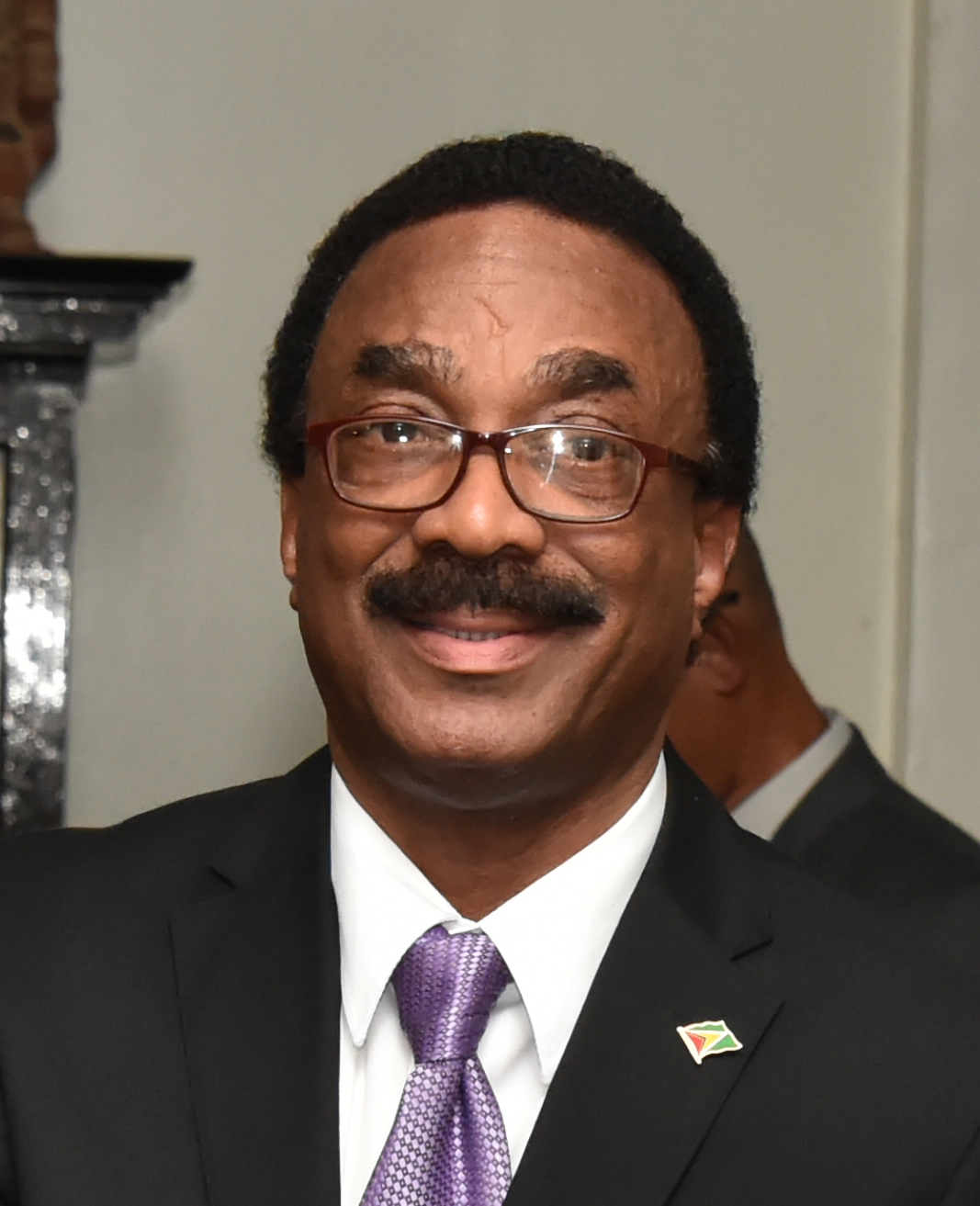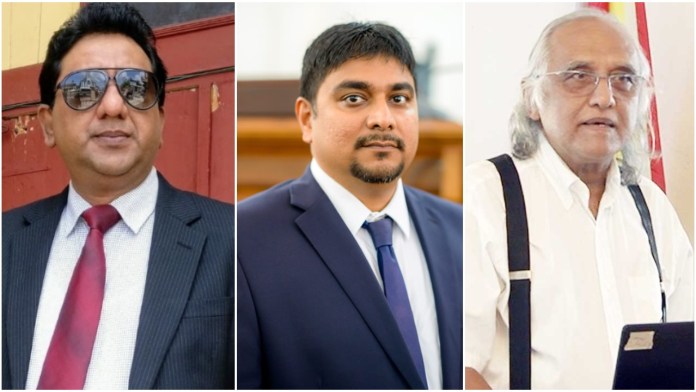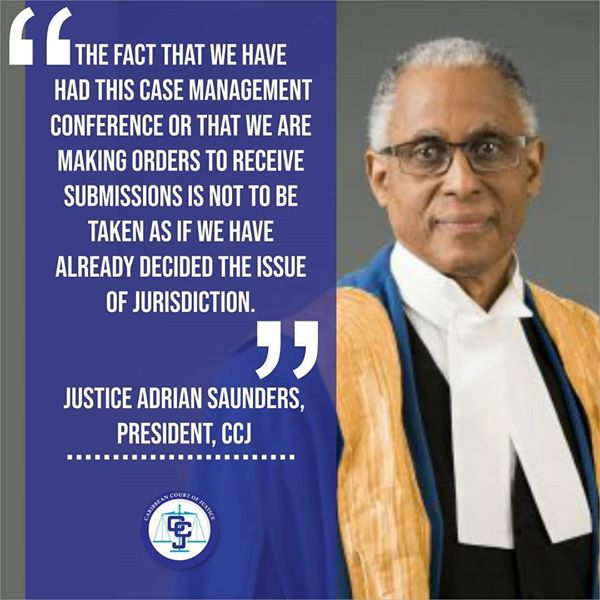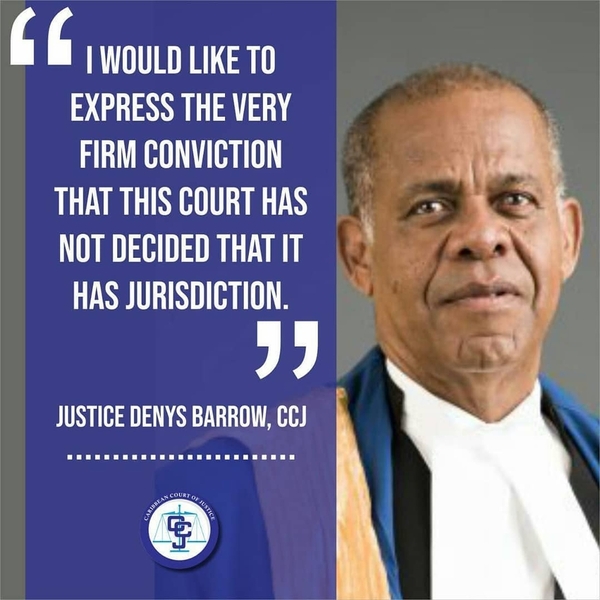
Attorney General (AG) Basil Williams
June 25 2020
Attorney General (AG) Basil Williams is contending that the Caribbean Court of Justice (CCJ) does not have jurisdiction to hear the intended appeal of last week’s ruling by the Guyana Court of Appeal that the words “more votes cast” should be interpreted to mean “more valid votes are cast in relation to the elections held on 2nd March 2020.”
As a matter of fact, Williams is arguing that the local appellate court’s ruling on the matter is final and therefore cannot be appealed.
Against this background, he is opposing special leave being granted by the CCJ to opposition People’s Progressive Party (PPP) General Secretary Bharrat Jagdeo and its presidential candidate Irfaan Ali, to appeal the decision.
The two have laid an intended appeal before the Trinidad-based court – Guyana’s final appellate court, seeking among other things to have the Court of Appeal’s decision set aside.
The ruling was based on an application initiated on behalf of Eslyn David, who sought various orders against the Guyana Elections Commission (GECOM), including one restraining Chief Election Officer (CEO) Keith Lowenfield from submitting his final report, which the Chairperson of the Commission had instructed him to prepare in order to make a declaration of the final results of the March 2 polls.
In a majority decision, the local Court of Appeal found that under Article 177 (4) of the Constitution, it had the jurisdiction to pronounce on David’s application, which sought to restrict the final declaration of the results to only votes deemed valid by Lowenfield.
The AG, in his affidavit before the CCJ, is contending that pursuant to Article 177 (4) any decision made by the Court of Appeal thereunder “shall be final.”
According to him, the article empowers the Court of Appeal to adjudicate matters of the type described in Article 177 to the exclusion of all other courts, including the CCJ.
That article states that the Court of Appeal “shall have exclusive jurisdiction to hear and determine any question as to the validity of an election of a President in so far as that question depends upon the qualification of any person for election or the interpretation of the Constitution; and any decision of that Court under this paragraph shall be final.”
Exclusive
The AG, in his responding affidavit, said that though Parliament in its powers established the CCJ as the final court of appeal for Guyana by virtue of Article 123 of the Constitution, the jurisdiction conferred on the CCJ under Part II Section 4(3) Cap 3:07 of its own Act expressly limits the appellate jurisdiction of that court.
That Section states, “Nothing in this Act shall confer jurisdiction on the court to hear matters in relation to any decision of the Court of Appeal which at the time of entry into force of this Act was declared to be final by any law.”
On this point, Williams pointed out that Article 123 has been in the 1980 Constitution from its inception – way before the CCJ Act referenced came into being in 2004.
Williams said that moreover, the explanatory memorandum of the CCJ Bill, No. 15 of 2004, which explains the purpose for the provisions in the Act, state that “Clause 4 provides for both the original and appellate jurisdiction and, inter alia, ensures that the CCJ would have no jurisdiction in relation to any decision of the Court of Appeal, which at the time of commencement of the Act for which this is the Bill was declared to be final by any law.”
The AG said that while it is clear from the Bill that the CCJ has both original and appellate jurisdictions, it is the clear intention of Section 4(3) to restrict the jurisdiction of the court.
On this point, he argues that Section 4(3) preserves the jurisdiction of the Court of Appeal and has an overriding effect over any other provision in the Act and that the Parliament of Guyana would have considered Article 177(4) which gives an exclusive jurisdiction to the Court of Appeal.
The CCJ, he said, does not therefore have an appellate jurisdiction in respect of matters determined by the Court of Appeal under Article 177.
Coercive
The AG, in asking that Jagdeo’s and Ali’s application be refused, is of the view that the interim orders being sought in the special leave application are “coercive orders.” He argues that in precedent set by the CCJ, it has established that it would not issue coercive orders against GECOM or give directives.
The matter comes up for case management this afternoon and the court has already announced that it will be fully heard next Wednesday.
The CCJ on Tuesday issued an order restraining GECOM from declaring the results of the elections.
GECOM Chairperson Justice Claudette Singh (ret’d) had instructed Lowenfield last week to prepare a report using a tabulation of votes from the national recount of ballots cast at the March 2nd polls. The recount showed a win for the PPP/C over the incumbent A Partnership for National Unity +Alliance for Change (APNU+AFC).
An initial report prepared by Lowenfield immediately following the recount, however, had acknowledged the votes tabulated by the recount but also said that given the alleged anomalies uncovered during the process, the results did not reflect a fair and credible election.
As a result, David wanted the Court of Appeal to declare that GECOM had failed to determine a final credible count and or the credibility of the result of the elections and on this ground she sought relief from the court.
She submitted that in accordance with the recount order and pursuant to Section 96 (1) of the Representation of the People Act (RPA), the CEO was required to determine the “total number of “valid votes” and in accordance with Article 177 (2) (b) of the Constitution where there is the reference to ‘more votes cast,” it must necessarily mean “more valid votes” cast.
The Court of Appeal in a majority decision on Monday ruled that the words “more votes cast” should be interpreted to mean “more valid votes” are cast in relation to the election held on March 2nd.
While Justice of Appeal Rishi Persaud ruled that David’s application was misconceived and dismissed it for want of jurisdiction, both Justice of Appeal Dawn Gregory, who led the panel, and High Court Judge Brassington Reynolds, concluded that based on the wording of Article 177(4) there exists a limited jurisdiction for the court to decide the validity of an election of a President based either on the qualification of the candidate or the interpretation of the Constitution.
In delivering her decision, Justice Gregory stressed that the issue at the root of the case is the scope and effect of the Recount Order in relation to 177 (2) (b) or specifically the interpretation of the words “more votes cast” as used in the article. She stressed that the precise question was whether Order 60 had enough force to influence the interpretation of these words before pronouncing that it did.
Justice Reynolds, whose ruling aligned with Justice Gregory, declared that the recount order created a new election regime which is hybrid in nature.
“The words `determining a credible count’ inserted into Order 60 were not mere surfacing considering that they were twice deployed… The reasonable inference to be drawn from this formulation of words is that the Commission having defined it as an objective of a recount must have intended that those words have effect,” he stated.
Noting that David’s challenge seeking to prevent the CEO from complying with the Chairperson’s direction was framed as an application pursuant to Article 177(4), Jagdeo and Ali are arguing that the reliefs sought fall outside the scope and intent of that article.
The tabulation of the recounted ballots, which concluded on June 8th, saw the opposition PPP/C leading the incumbent APNU+AFC by 15,416 votes, with the PPP/C securing 233,336 votes compared with 217,920 secured by APNU+AFC.
Before the recount, two highly controversial declarations made by Clairmont Mingo, Returning Officer for Electoral District Four, showed the coalition poised to win. Local and international observers had, however, discredited Mingo’s declaration for lack of transparency. The dispute over the legality of his declarations, which were based on fictitious numbers, led to the recount, which was observed by CARICOM.













